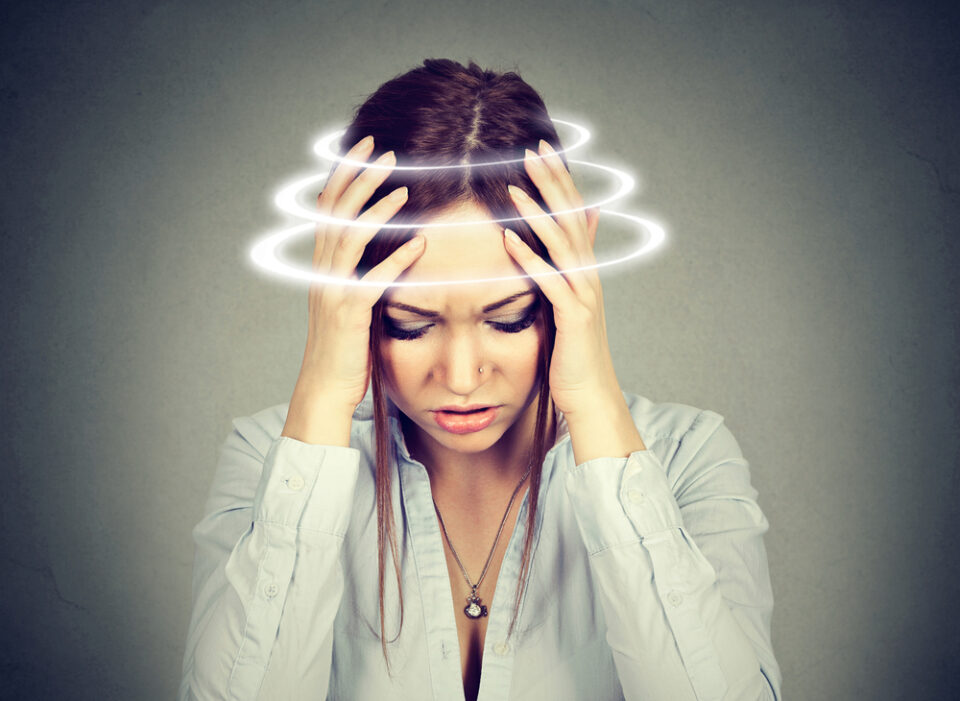Vestibular disorders can cause symptoms, such as dizziness or vertigo, which can alter the balance of and quality of life. In addition to pharmacological intervention, corrective maneuvers and, if necessary, surgery, an interesting therapeutic opportunity is offered by nutraceuticals, although their rationale for use is not always supported by solid scientific evidence.
The most frequent vestibular disorders from the epidemiological point of view are benign paroxysmal positional vertigo, or Vppb, Ménière’s syndrome, vestibular neuritis and bilateral vestibulopathy. The most common symptoms are that bad sensation of true rotatory vertigo that in the different pictures can last from a few seconds to hours or days, variously accompanied by a neurovegetative cortege with nausea and, in some cases, vomiting. In non-acute phases, imbalance may persist. In Ménière’s syndrome, then clinical manifestations also include fluctuating reduction of hearing, the appearance of tinnitus and the sensation of ear fullness. These are all symptoms that should prompt a specialist evaluation by an audiologist or otolaryngologist who is an expert in balance disorders.
The treatment is of course related to the diagnosis and varies greatly from picture to picture. For Vppb, for example, drugs play a marginal role since the solution is the so-called repositioning maneuvers, precise movements that reposition the otoliths that are in the wrong place and cause sudden vertigo. In other cases, in the moment of acute vertigo it will be important to manage the very intense symptoms with drugs that include several choices from diuretics, to beta-histine, to antiemetics up to, sometimes, corticosteroids. Surgery is considered only as a last resort in particularly disabling forms of Meniere’s syndrome.
Nutraceuticals are an interesting therapeutic opportunity, especially in the intercritical phases of the disease or in the recovery of residual imbalance in some subjects. These compounds are already commonly used in many specialized branches. They are safe and effective compounds that can be administered without associated drugs or in combination to decrease dosage.
The main compounds are Ginkgo Biloba which has neuroprotective, antioxidant and anti-inflammatory function and improves cerebral perfusion thus reducing the vertigo symptoms.
The Ginger with its antioxidant and anti-inflammatory action has positive effects on vertigo and motion sickness.
The citicoline has a neuroprotective and neuromodulator function and seems to be able to reduce vertigo symptoms both of central and peripheral origin even if the mechanism of action is not yet completely known.
Low levels of magnesium in the blood are frequently found in some pathologies such as, for example, migraine. Recent scientific evidence confirms the efficacy of magnesium in migraine-based vertigo with satisfactory results. Therefore, the supplementation of this enzymatic cofactor seems to have good capabilities in reducing vestibular symptoms.
Lemon balm acts on the Gabaergic system like benzodiazepines, drugs sometimes used in the treatment of some vestibular disorders. It also has neurocognitive, antioxidant effects and is currently used in the management of some diseases of neurological interest.
Omega-3 are essential fatty acids that could be used in the future in Ménière’s disease for their role in inducing hemodynamic changes. Also in the latter has been recently successfully introduced the use of the so-called antisecretory factor, a protein produced by the same organism and administered in the form of cereals, able to regulate ions and water, interacting with aquaporins and modulating the homeostasis of chloride and, therefore, can be used in patients with Meniere’s disease.
The nutracetutical principles available are really numerous and all with documented effects on the balance system. They can represent a good help in some phases of the disease or in the integration to the pharmacological therapy.

